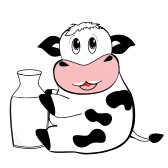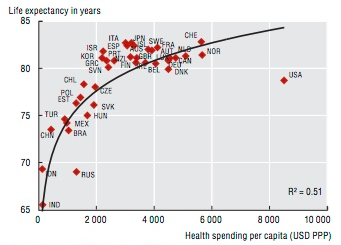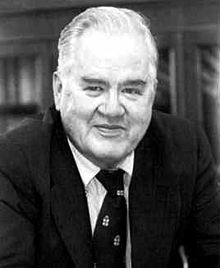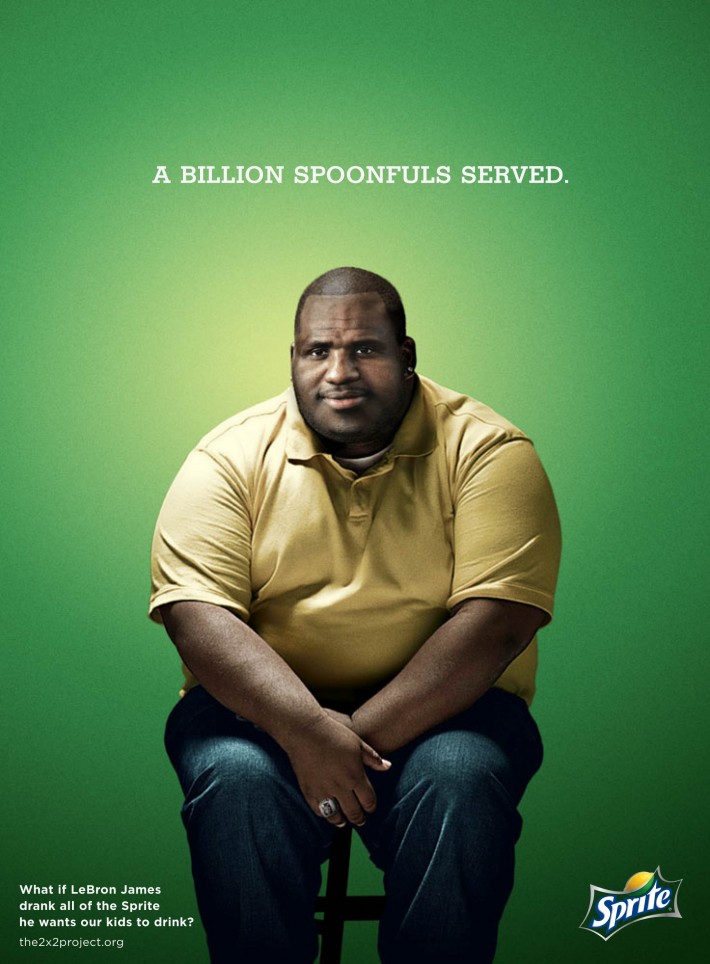 One of the more useful phenomena employed in psychological research is what’s known as “priming.” This idea is simple: get a thought into people’s heads, and it lingers, thereby affecting future thoughts. Hold a cup of hot tea while riding an elevator, and the next person you meet might seem to have a warmer personality!
One of the more useful phenomena employed in psychological research is what’s known as “priming.” This idea is simple: get a thought into people’s heads, and it lingers, thereby affecting future thoughts. Hold a cup of hot tea while riding an elevator, and the next person you meet might seem to have a warmer personality!
Here is a fun little game you can play with your friends, that not only will surprise them, but will teach them about priming. Ask them to answer the following questions as quickly as they can:
– What color is snow?
– What color are clouds?
– What color is whipped cream?
– What color are polar bears?
– What do cows drink?
Watch how many of your friends tell you that cows drink milk. They have been primed by saying “white” so many times, and by the ready association between cows and milk.
I thought that would be a fun one to pass along.
(Click here to view comments)
How Truman's Medicare Efforts Were Foiled by Red Baiting
 In The Heart of Power, David Blumenthal and James Morone relate the 75 year history of presidential efforts (typically unsuccessful) to reform the U.S. healthcare system. I used to think major reform efforts did not happen for many years after FDR’s New Deal. After all, social security had taken a huge dent out of poverty among the elderly. But healthcare costs were rising throughout the 1940s, and Harry Truman, FDR’s successor, was determined to provide all Americans with affordable healthcare. In his 1948 State of the Union Address, Truman made his values clear.
In The Heart of Power, David Blumenthal and James Morone relate the 75 year history of presidential efforts (typically unsuccessful) to reform the U.S. healthcare system. I used to think major reform efforts did not happen for many years after FDR’s New Deal. After all, social security had taken a huge dent out of poverty among the elderly. But healthcare costs were rising throughout the 1940s, and Harry Truman, FDR’s successor, was determined to provide all Americans with affordable healthcare. In his 1948 State of the Union Address, Truman made his values clear.
“The greatest gap in our social security structure is the lack of adequate provision for the Nation’s health…this great Nation cannot afford to allow its citizens to suffer needlessly from the lack of proper medical care.”
But with the communist Soviet Union on the rise, Truman’s ideas were susceptible to accusations of socialism. Republicans and conservative Democrats used the Health Committee on Expenditures in the Executive Department to look for communists that might be influencing Truman’s healthcare reform efforts… (Read more and view comments at Forbes)
Outlier Nation: US Health Care Spending and Life Expectancy
There are many reasons that life expectancy is not a good measure of a health care system. For starters, how long people live is often more a function of public health systems then of medical care systems, with clean water and low rates of infectious diseases having more impact on people’s life expectancy than their axis, or lack of access, to PET scanners. In addition, many social and economic forces have a big impact on life expectancy, in ways that no medical care system can necessarily make up for. That said, the accompanying figure is an astonishing picture of just how much of an outlier nation the US has become:

I will not try to pull too much meaning from one picture. But it is a sobering reminder that despite all of the wealth we have in the United States, and the huge portion of that wealth that we pour into our healthcare system, the people living in our great country live shorter lives than most of our peers.
(Click here to view comments)
Ancient Greek Philosopher Anticipates Behavioral Economics Finding
 I have conducted a number of studies on a phenomenon sometimes referred to as emotional adaptation. The basic idea behind this phenomenon is that people often respond with strong emotions to significant changes in their circumstances, but these emotions tend to diminish over time. Moreover, people often fail to anticipate this change in emotions, a failure that psychologists Dan Gilbert and Tim Wilson called “immune neglect.”
I have conducted a number of studies on a phenomenon sometimes referred to as emotional adaptation. The basic idea behind this phenomenon is that people often respond with strong emotions to significant changes in their circumstances, but these emotions tend to diminish over time. Moreover, people often fail to anticipate this change in emotions, a failure that psychologists Dan Gilbert and Tim Wilson called “immune neglect.”
So you can imagine that my interest was piqued when I came across this quote from Epicurus, way back in the times of ancient Greece (although I don’t think they called it ancient Greece back then).
“Do not spoil what you have by desiring what you have not; but remember that what you now have was once among the things you only hoped for.”
This quote doesn’t point exactly towards immune neglect, but it implicitly acknowledges emotional adaptation. We get satiated, or satisfied, with what we have, and therefore yearn for more. But sometimes it’s good to take a step back and remember that what we have right now, often, is pretty darn good. It might even have been what we yearned for previously.
An Embarrassingly Unscientific New York Times Op-Ed on Music and Success
 A recent New York Times op-ed by Joanne Lipman poses the question: “Is music the key to success?” As a serious amateur musician, I have long credited my half-way respectable pianistic accomplishments to the discipline I gained practicing Chopin etudes, and even to the teamwork I developed practicing Beethoven piano trios. In fact, I frequently pull out these arguments when trying to convince my children to practice piano, although once you have to make a “piano practicing makes you more successful” argument with your children, you know you’ve lost the piano playing battle.
A recent New York Times op-ed by Joanne Lipman poses the question: “Is music the key to success?” As a serious amateur musician, I have long credited my half-way respectable pianistic accomplishments to the discipline I gained practicing Chopin etudes, and even to the teamwork I developed practicing Beethoven piano trios. In fact, I frequently pull out these arguments when trying to convince my children to practice piano, although once you have to make a “piano practicing makes you more successful” argument with your children, you know you’ve lost the piano playing battle.
Tired of my own anecdotal arguments, I eagerly read Lipman’s op-ed to find out what scientific evidence would say about the topic. Instead I was greeted with a whole series of anecdotes. Lipman writes: “Look carefully and you will find musicians at the top of almost any industry.” Then she lists illustrative examples: Woody Allen in the movie industry, Paula Zahn in news casting, Larry Page at Google.
Pretty strong evidence, yes? Not really, when you realize the huge number of successful people in all those industries who don’t have serious musical training… (Read more and view comments at Forbes)
Squat for Your Subway Token: One of the Most Creative Nudges I've Encountered
This idea is so crazy it might just be the best one I’ve heard all week: a subway station in Moscow provides free tickets to commuters who stand in front of a monitor and squat or lunge 30 times.

I love this idea. Have any of you heard of any other nudges like this?
(Click here to view comments)
The Loneliest Number
 If you ever want to know why one is the loneliest number, consider the words of John Tukey, a prominent American mathematician from the 20th century. Not the most socially adept person in the world, he relied heavily on his wife Elizabeth to help them live a normal life. When she died in 1998 Tukey tersely described the pain he was feeling, and put it into terms that he, as a mathematician, could relate to so profoundly. He said: “One is so much less than two.”
If you ever want to know why one is the loneliest number, consider the words of John Tukey, a prominent American mathematician from the 20th century. Not the most socially adept person in the world, he relied heavily on his wife Elizabeth to help them live a normal life. When she died in 1998 Tukey tersely described the pain he was feeling, and put it into terms that he, as a mathematician, could relate to so profoundly. He said: “One is so much less than two.”
(Click here to view comments)
Should HIV-Positive Patients Receive Scarce Lung Transplants?
 Quite a while ago, I was co-author on a New England Journal of Medicine article arguing that HIV-positive patients, stable on anti-retro viral therapy, were now healthy enough to qualify as organ transplant recipients. Nevertheless, this practice remains controversial, as you can see from this story published by Al Jazeera America, telling a tragic tale of a man who did not receive a lung transplant:
Quite a while ago, I was co-author on a New England Journal of Medicine article arguing that HIV-positive patients, stable on anti-retro viral therapy, were now healthy enough to qualify as organ transplant recipients. Nevertheless, this practice remains controversial, as you can see from this story published by Al Jazeera America, telling a tragic tale of a man who did not receive a lung transplant:
In death, HIV-positive man may become a symbol of transplant hope for others
Lamont Valentin needed an oxygen tank to breathe. Everything he did — whether it was traveling by bus from his home in Harlem to his doctor’s office, teaching HIV-positive kids photography at a New York City nonprofit or taking care of his 2-year-old son — the tank accompanied him.
About a year and a half ago, it became clear a lung transplant was Valentin’s only hope to breathe easier. And he could have been a good candidate for the procedure — he was young and otherwise healthy. He, his friends and some medical experts believed he would have been able to survive for many more years if he had been given new lungs.
But when he began looking for a transplant, he was denied almost everywhere he turned, supporters said.
Holding him back was the virus he was born with in 1984, HIV. Early in life, before he began using modern antiretroviral drugs, it left him with permanent lung damage… (Read more here)
Media Picking Up My Critique of Lebron James
 Inquisitor.com just picked up my recent Forbes post on Lebron James, and ran with it (even though, of course, that is the wrong sports metaphor for me to use). Here is their story on my story:
Inquisitor.com just picked up my recent Forbes post on Lebron James, and ran with it (even though, of course, that is the wrong sports metaphor for me to use). Here is their story on my story:
Forbes contributor Peter Ubel calls LeBron James the “King of Junk Food,” in a recent column for the business-finance mag.
This just in: not everyone is a fan of LeBron James.
OK, that’s not really new from Cleveland Cavaliers fans, but this perspective comes from that of a loving parent to one of the millions of kids who idolize LeBron James.
In a piece entitled “Is LeBron James Fattening His Wallet By Fattening Our Kids?” Ubel calls attention to the Miami Heat’s tens of millions in annual endorsement income, much of which comes from such benefactors as Sprite (“sugar water”), Powerade (“glorified sugar water”) and McDonald’s (“the place you wash down fries and burgers with sugar water”).
Ubel describes how huge a fan his son is of LeBron James, and—while his son would never admit to liking Powerade because of James, if he even understands the connection—that it’s clear the advertising world has worked its magic on the 13-year-old… (Read more at Inquisitr)
Is Lebron James Fattening His Wallet by Fattening Our Kids?
 Lebron James makes over $19 million per year playing basketball for the Miami Heat. Not surprisingly, this salary is peanuts compared his endorsement earnings, which in 2012 topped $42 million. Although perhaps peanuts is the wrong word to use when discussing James outside earnings, which to my knowledge have not involved foods anywhere near as healthy as peanuts. Instead, according to a recent study in the journal Pediatrics, James is King of Junk Food, earning millions of dollars endorsing Sprite (a.k.a. sugar water), Powerade (a.k.a. glorified sugar water) and McDonald’s (a.k.a. the place you wash down fries and burgers with sugar water).
Lebron James makes over $19 million per year playing basketball for the Miami Heat. Not surprisingly, this salary is peanuts compared his endorsement earnings, which in 2012 topped $42 million. Although perhaps peanuts is the wrong word to use when discussing James outside earnings, which to my knowledge have not involved foods anywhere near as healthy as peanuts. Instead, according to a recent study in the journal Pediatrics, James is King of Junk Food, earning millions of dollars endorsing Sprite (a.k.a. sugar water), Powerade (a.k.a. glorified sugar water) and McDonald’s (a.k.a. the place you wash down fries and burgers with sugar water).
My 13-year-old son is a huge Lebron fan. He owns a Lebron jersey, roots for the Miami Heat even though he’s never lived anywhere near Florida, and even defended James after his colossally misguided “decision.” Food marketers recognize that 13-year-olds like my son are strongly influenced by their idols. They know that linking popular athletes with their products will create positive psychological associations. These associations often work at an unconscious level… (Read more and view comments at Forbes)
